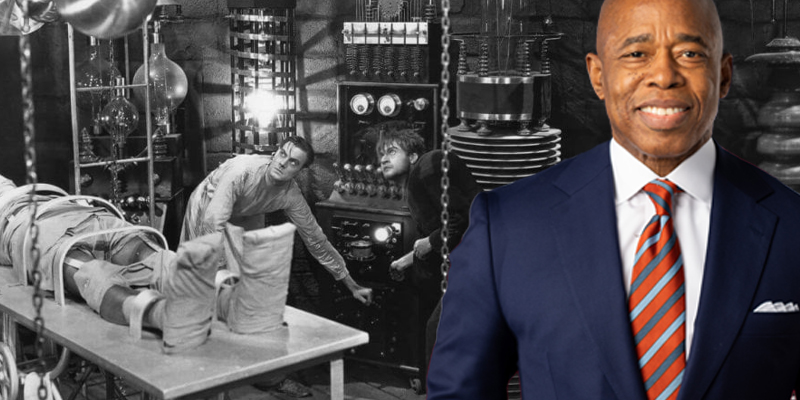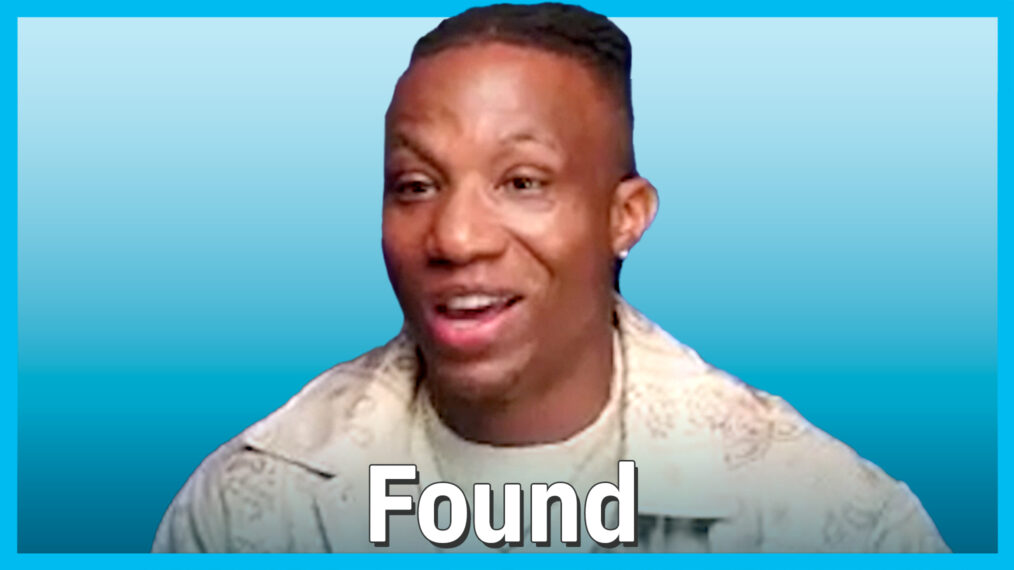Sometimes friends get you in trouble. It’s just going to happen. Even your closest, oldest friends will give you bad advice or indulge a destructive impulse—“Stay out for one more!” “Text him!” “Take extravagant airline upgrades from Turkey!”
But if you’re New York Mayor Eric Adams or part of his crew, you’ve really got to be wondering about your choice of friends these days. Something’s definitely up with your social circle when your only supporters are cardboard, or everyone in your group chats is being raided by the feds, or you look around and find yourself sitting alone at the table of success.
As a fellow New Yorker, I want to help out. I get it, sometimes people aren’t who you thought they were. So here’s some advice from literature for Mayor Adams and his pals on how to navigate weird friend groups, toxic situations, and bad advice.
Don’t get involved with elitist crews (like Richard from The Secret History)
Eric Adams has always hung around in a bunch of odd, secretive groups: the ritzy diners at La Baia, the clubbers at Zero Bond, the cops of the NYPD. Adams might have seen this coming if he’d looked to Richard Papen, who had a bad time after being enscorcled by a crew of Classics babes.
No matter how cool and interesting a group of secretive elites may seem, make sure you’re poking around for skeletons in the closet before you beg them to let you in.
Don’t follow the advice of randos (like Macbeth in Shakespeare)
Just because the Three Witches ended up being right doesn’t mean that Macbeth should have listened to three people who burst in on him. Vet your sources, especially if you’re in a position of power. And get someone to watch the door if you’re finding that witches are bursting in a lot.
Don’t do something shady just because the opportunity presents itself (like Theo from The Goldfinch)
Take a second to think things through; you don’t have to say yes to every impulse or opportunity. Adams and company could have learned from The Goldfinch: just because you have a chance to walk out of a museum with a painting, doesn’t mean you should. Next time someone is offering you a hefty campaign donation or a free hotel in Istanbul, taking a second to think about why, and if it serves you.
Or to put it in terms that may be clearer: Let your conscience be your conference at the table of good advice.
Don’t get involved in someone else’s drama (like Rosencrantz and Guildenstern in Tom Stoppard and Shakespeare)
Spies for a scheming King Claudius? Bad friends to Prince Hamlet? Two pals who are confused about what’s going on? Who are Rosencrantz and Guildenstern, really?
Depends who you ask, but to my eye, they’re two guys who got mixed up in something they shouldn’t have. If a person seems messy — like an indecisive Danish prince, or his corrupt uncle, or a politician who can’t seem to figure out if he’s vegan or not — steer clear. It’s not worth the drama or the jail time.
Don’t follow someone who is playing God (like Igor from Frankenstein)
Igor had hands down one of the worst internships in literature.
I don’t care how much he needed that “Creepy Assistant” line on his resume, he shouldn’t have taken a position that involved so much graverobbing.
Some advice from Igor that Adams’ subordinants should have taken is to always make sure your employer isn’t trying to subvert God in any way. In any job interview, be sure to ask if your boss’ project involves thumbing their nose at The Divine Being.
And while Eric Adams isn’t using lightening to create life in Gracie Mansion, he did say God told him to become mayor, which should be red flag enough.
Don’t get behind someone with an impulsive wild streak (like the Argonauts from Medea and the Argonautica)
Jason was cool, yes; related to the gods, yes; trying to get some cool treasure, yes. But I bet a lot of Argonauts got very sick of Jason’s repeatedly saying, “Hey can we stop off at this island really fast,” only to be attacked by some insane monster that gave them all a new form of PTSD.
Don’t follow a leader who is going to give you trauma so bad that they name it after you — the DSM is full of complexes named after some poor Greek.
Or to put it another way: don’t let your broken brain become a trouble train in the subway station of mental health.


























































